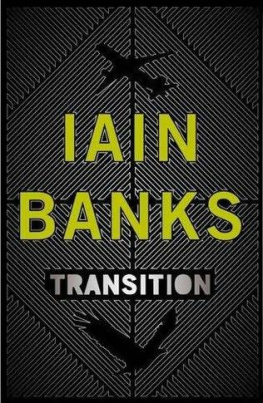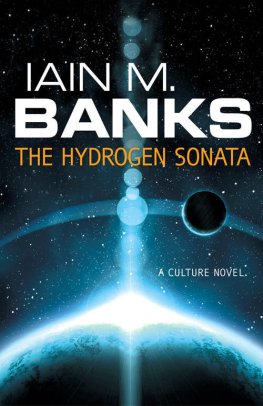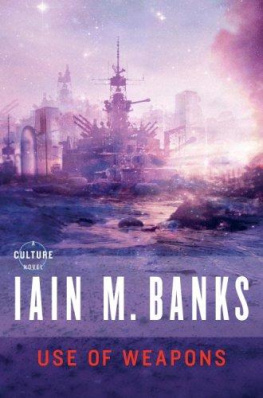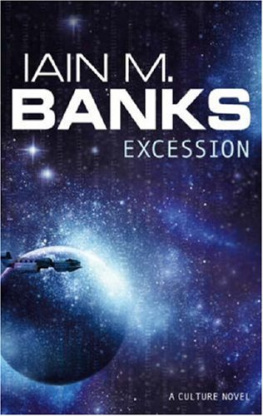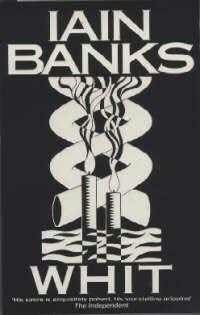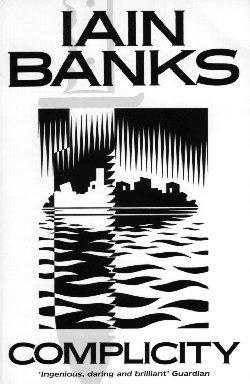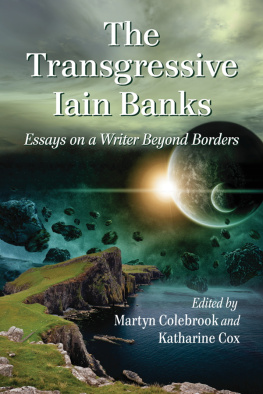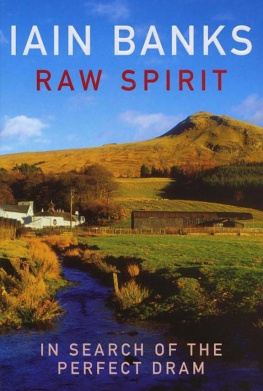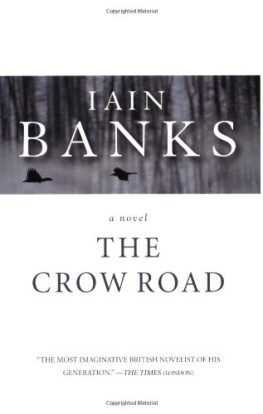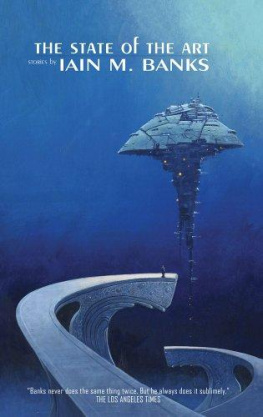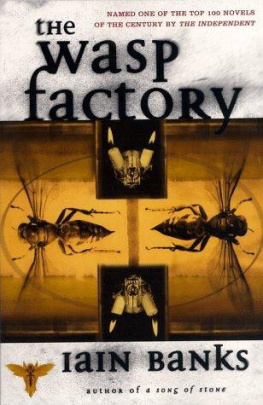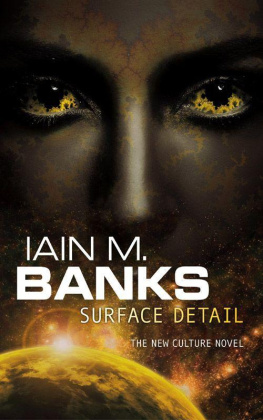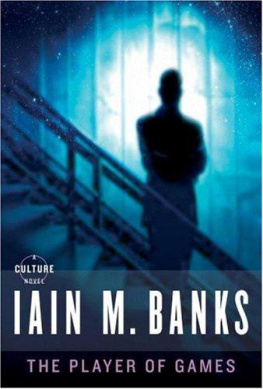Iain Banks - Transition
Here you can read online Iain Banks - Transition full text of the book (entire story) in english for free. Download pdf and epub, get meaning, cover and reviews about this ebook. genre: Detective and thriller. Description of the work, (preface) as well as reviews are available. Best literature library LitArk.com created for fans of good reading and offers a wide selection of genres:
Romance novel
Science fiction
Adventure
Detective
Science
History
Home and family
Prose
Art
Politics
Computer
Non-fiction
Religion
Business
Children
Humor
Choose a favorite category and find really read worthwhile books. Enjoy immersion in the world of imagination, feel the emotions of the characters or learn something new for yourself, make an fascinating discovery.
- Book:Transition
- Author:
- Genre:
- Rating:3 / 5
- Favourites:Add to favourites
- Your mark:
- 60
- 1
- 2
- 3
- 4
- 5
Transition: summary, description and annotation
We offer to read an annotation, description, summary or preface (depends on what the author of the book "Transition" wrote himself). If you haven't found the necessary information about the book — write in the comments, we will try to find it.
Transition — read online for free the complete book (whole text) full work
Below is the text of the book, divided by pages. System saving the place of the last page read, allows you to conveniently read the book "Transition" online for free, without having to search again every time where you left off. Put a bookmark, and you can go to the page where you finished reading at any time.
Font size:
Interval:
Bookmark:

Transition
Iain Banks
Copyright 2009 by Iain M. Banks
All rights reserved. Except as permitted under the U.S. Copyright Act of 1976, no part of this publication may be reproduced, distributed, or transmitted in any form or by any means, or stored in a database or retrieval system, without the prior written permission of the publisher. Orbit
Hachette Book Group
237 Park Avenue,
New York, NY 10017
Visit our website at www.HachetteBookGroup.com
www.twitter.com/orbitbooks
First eBook Edition: September 2009
Orbit is an imprint of Hachette Book Group. The Orbit name and logo are trademarks of Little, Brown Book Group Limited.
The characters and events in this book are fictitious. Any similarity to real persons, living or dead, is coincidental and not intended by the author.
ISBN: 978-0-316-07596-1
By Iain Banks
The Wasp Factory
Walking On Glass
The Bridge
Espedair Street
Canal Dreams
The Crow Road
Complicity
Whit
A Song Of Stone
The Business
Dead Air
The Steep Approach To Garbadale
Also by Iain M. Banks
Consider Phlebas
The Player Of Games
Use Of Weapons
The State Of The Art
Against A Dark Background
Feersum Endjinn
Excession
Inversions
Look To Windward
The Algebraist
Matter
Transition
For Alastair and Emily, and in memory of Bec
With thanks to Adle, Mic, Richard, Les, Gary and Zoe
Apparently I am what is known as an Unreliable Narrator, though of course if you believe everything youre told you deserve whatever you get. It is, believe me, more than a little amazingand entirely unprecedentedthat you are reading these words at all. Have you ever seen a seismograph? You know: one of those terribly delicate and sensitive things with a long spideryfingered pen that inscribes a line on a roll of paper being moved beneath it, to record earth tremors.
Imagine that one of those is sailing serenely along, recording nothing of note, drawing a straight and steady black line, registering just calmness and quiet both beneath your feet and all around the world, and then it suddenly starts to write in flowing copperplate, the paper zipping back and forth beneath it to accommodate its smoothly swirling calligraphy. (It might write: Apparently I am what is known as an Unreliable Narrator)
That is how unlikely it is that I am writing this and anybody is reading it, trust me. Time, place. Necessary, I suppose, though in the circumstances insufficient. However, we must begin somewhere and somewhen, so let me start with Mrs Mulverhill and record that, by your reckoning, I first encountered her near the beginning of that golden age which nobody noticed was happening at the time; I mean the long decade between the fall of the Wall and the fall of the Towers.
If you wish to be pedantically exact about it, those retrospectively blessed dozen years lasted from the chilly, fevered Central European night of November 9th, 1989 to that bright morning on the Eastern Seaboard of America of September 11th, 2001. One event symbolised the lifted threat of a worldwide nuclear holocaust, something which had been hanging over humanity for nearly forty years, and so ended an age of idiocy. The other ushered in a new one.
The walls fall was not spectacular. It was night and all you saw on television was a bunch of leather-jacketed Berliners attacking reinforced concrete mostly with hammers, rather ineffectually. Nobody died. A lot of people got drunk and stoned and laid, no doubt. The wall itself was not a striking structure, and not even very tall or especially forbidding; the real obstacle had always been the barren, sandy killing ground of mines, dog runs and razor wire behind it.
The vertical barrier was always more symbolic than anything else; a delineation, so the fact that none of the crowds of cheerful vandals scrabbling for a perch on it could do much to destroy it without access to heavy equipment was irrelevant; what mattered was that they were clambering all over this famously divisive, allegedly defensive symbol without getting machine-gunned. However, as the expression of a sudden outburst of hope and optimism and an embracing of change, one could ask for no more, I suppose. The al-Qaida attack on the USA well, given that a nation was invaded and occupied using this as an excuse, and that this was done in the name of democracy, lets be both nationalistic and democratic about it: the Saudi Arabian attack on the USAcould hardly have offered a greater contrast.
Slung between these two wide-reaching levellings, the intervening years held civilisation happily if ignorantly scooped, as in a hammock. Sometime about the centre of that sweet trough, Mrs M and I became lost to each other. We met again, then parted again for the final time just before the third Fall, the fall of Wall Street and the City, the fall of the banks, the fall of the Markets, beginning on September 15th, 2008.
Perhaps we all find such coincident place marks in the books of our lives reassuring. Still, it seems to me that such congruencies, while useful in fixing what one might call ones personal eras within our shared history, are effectively meaningless. Lying here, during all this time after my own small fall, it has become my conviction that things mean pretty much what we want them to mean. Well pluck significance from the least consequential happenstance if it suits us and happily ignore the most flagrantly obvious symmetry between separate aspects of our lives if it threatens some cherished prejudice or cosily comforting belief; we are blindest to precisely whatever might be most illuminating. Mrs Mulverhill herself said that, I think. Or it might have been Madame dOrtolan I get the two confused sometimes.
I am getting a little ahead of myself, so, in the light of the above, let us embrace rather than resist this effect.
You may, even as we begin, wish to know how my part in this ends. So let me tell you.
This is how it ends: he comes into my room. He is dressed in black and wearing gloves. It is dark in here, just a night light on, but he can identify me, lying on the hospital bed, propped up at a slight angle, one or two remaining tubes and wires attaching me to various pieces of medical equipment. He ignores these; the nurse who would hear any alarm is lying trussed and taped down the hall, the monitor in front of him switched off. The man shuts the door, darkening the room still further. He walks quietly to my bedside, though I ought to be unlikely to wake as I am sedated, lightly drugged to aid a good nights sleep. He looks at my bed. Even in the dim light he can see that it is tightly made; I am constricted within this envelope of sheets and blanket. Reassured by this confinement, he takes the spare pillow from the side of my head and places it gently at first over my face, then quickly bears down on me, forcing his hands down on either side of my head, pinning my arms under the covers with his elbows, placing most of his weight on his arms and his chest, his feet rising from the floor until only the tips of his shoes are still in contact with it.
I dont even struggle at first. When I do he simply smiles. My feeble attempts to bring my hands up and to use my legs to kick myself free come to nothing. Wound amongst these sheets, even a fit man would have stood little chance of fighting his way from beneath such suffocating weight. Finally, in one last hopeless convulsion, I try to arch my back. He rides this throe easily and in a moment or two I fall back, and all movement ceases.
Next pageFont size:
Interval:
Bookmark:
Similar books «Transition»
Look at similar books to Transition. We have selected literature similar in name and meaning in the hope of providing readers with more options to find new, interesting, not yet read works.
Discussion, reviews of the book Transition and just readers' own opinions. Leave your comments, write what you think about the work, its meaning or the main characters. Specify what exactly you liked and what you didn't like, and why you think so.

